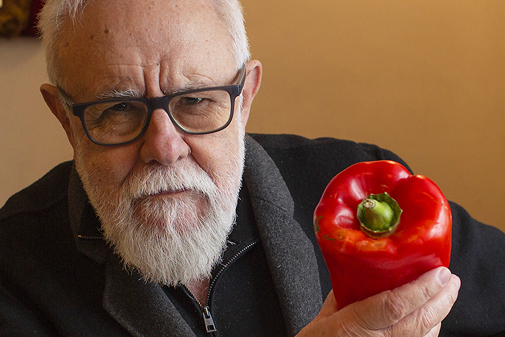Gonzalo Suárez, Honorary Goya Award: "Since I didn't know how to make films, I wanted to invent them."

Updated
Gonzalo Suárez (Oviedo, 1935) will receive the Honorary Goya from the Film Academy at the ceremony to be held in Barcelona in February 2026. The award celebrates a late and mocking career that began in art house and subverted genres and schemes. Suárez has released 27 films since 1966, including Remando al viento (Reaming with the Wind), El lado oscuro (The Dark Side), El detective y la muerte (The Detective and Death), Epílogo (Epilogue) and La Regenta (The Regenta ).
- Since this is the Spanish film award, I'd like you to talk about Spanish cinema. Who do you identify with?
- Berlanga's name comes to mind, but I feel bad because I know I'm forgetting people, and I don't want to. Let's just say I like humor that isn't too explicit. We've also had overly explicit humor, eh, we've already made vulgar films in Spain. Look, I... I've made films, but somewhat circumstantially. I wouldn't call myself a filmmaker, but I wouldn't call myself a writer either, even though I've been writing since I was a child. I'm more of a person who's learning something, I can't say what.
- Many people see it in the tradition of de la Serna and the other 27.
- I'm comfortable with that idea. Look, I remember Jardiel, so I'll leave it there, with a quote from two humor writers, Jardiel and Berlanga.
- His first films were cosmopolitan, they tried to ignore the dictatorship that existed in Spain.
- The dictatorship was important in my life. My father was a prisoner and lost his professorship. He translated Melville under a pseudonym that I later used, Octavio Beiral. I was born during the mining revolution in Asturias. Apparently, during the war they hid me under the bed to protect me from shrapnel. I wouldn't be much use today because they'd sweep the house clean with a burst. The war and the postwar period weren't good memories. The thing is, it took me a long time to make films. I started at 33, and suddenly. And then I made twenty-something films.
- How many do you like?
- I've chosen to make the films I've made, not just for the sake of making them. So, I remember them all fondly. There's one I saw recently, Parranda , which is a naturalistic film, and it's strange because naturalism doesn't interest me. But in that film, Ferrandis had a very special performance; he was formidable. I also remember Remando al viento (Reaming with the Wind ). And Epílogo (Epilogue ). I mortgaged the house to make Epílogo , but it worked out in the end. It would be an impossible film to consider now.
- What unites your best films?
- My initial plans were to invent cinema. Since I didn't know how to make films, I wanted to invent them. In Aoom , for example, I thought of making films like Impressionist paintings. I wanted the brushstroke to matter as much as the subject. The film was poorly received at the San Sebastián Film Festival, but it led me to meet Sam Peckinpah.
- That "inventing cinema" sounds like he didn't like the movies he saw.
- Not exactly. I really liked Ingmar Bergman's films. Maybe I wouldn't feel the same passion today. And Bacall and Bogart's noir influenced the tone of The Detective and the Death . But I always navigated like an explorer, not like a traveler headed for a specific destination.
- Do you enjoy directing? Do you like it more than writing?
- Writing is sitting down, being in front of yourself. Cinema is action, it's meeting people. I've always felt at home while filming. I can't remember a single shoot where I wasn't completely at ease. I've had a few minor conflicts with an actor whose performance I couldn't quite get, but they were minor things... Directing is giving real expression to the imagination, and that excites me. I know that tended toward the theatrical, and I wanted to avoid the theatrical. The challenge was to accept that the theatrical was inevitable and find loopholes, bring it into a broader context. Now they're going to shoot Operation Double Two , the script I wrote with Peckinpah and that I couldn't film. Félix Tusell will produce it and Rodrigo Sorogoyen will direct it.
- I remember watching Rowing with the Wind as a kid.
- I remember the touch that film had; it integrated fantasy into Mary Shelley's story, which fascinated me. It was a literary film, but it had a very cinematic beauty and concreteness. And I was pleased with the actors. Hugh Grant was in his first major role, or almost.
elmundo






